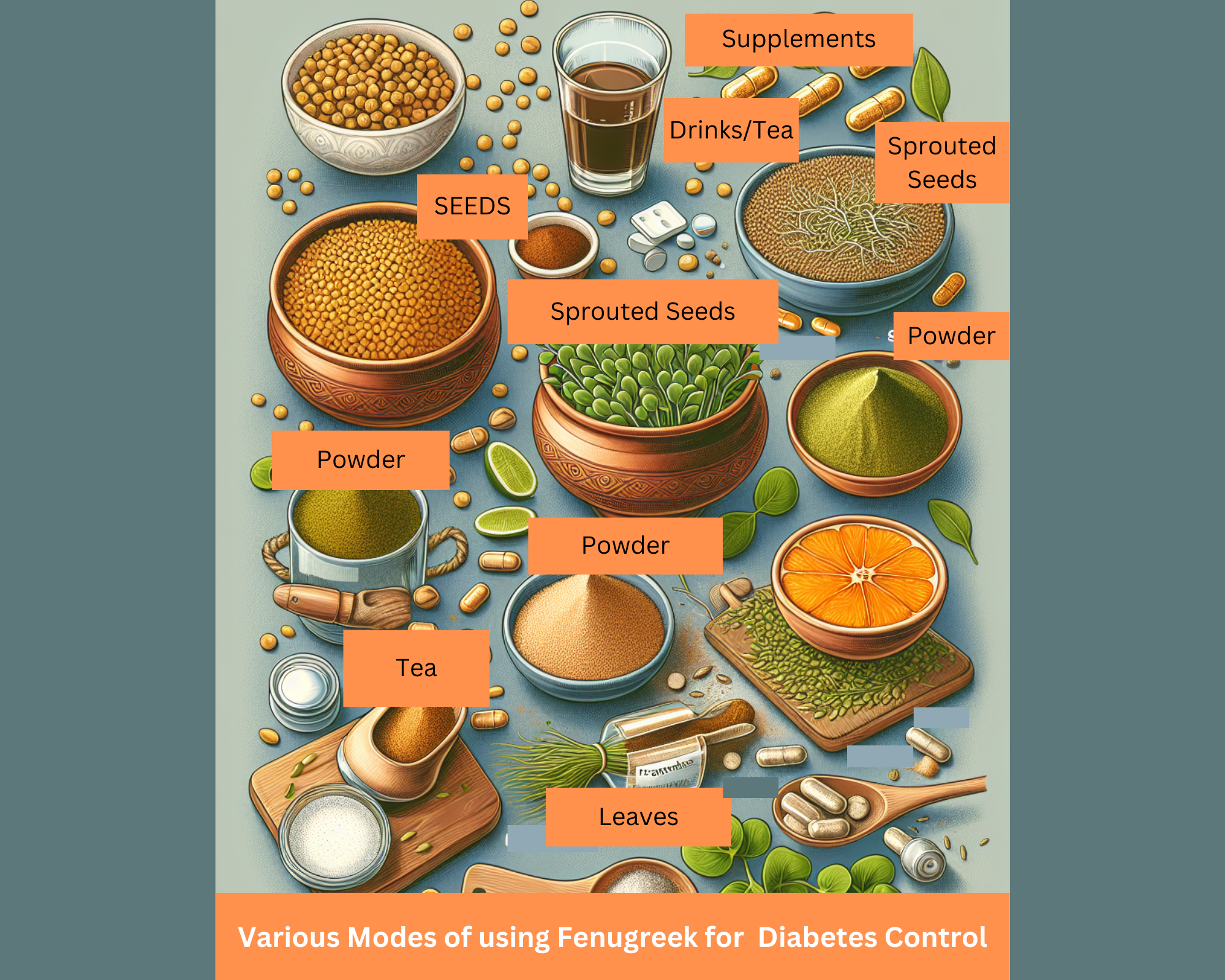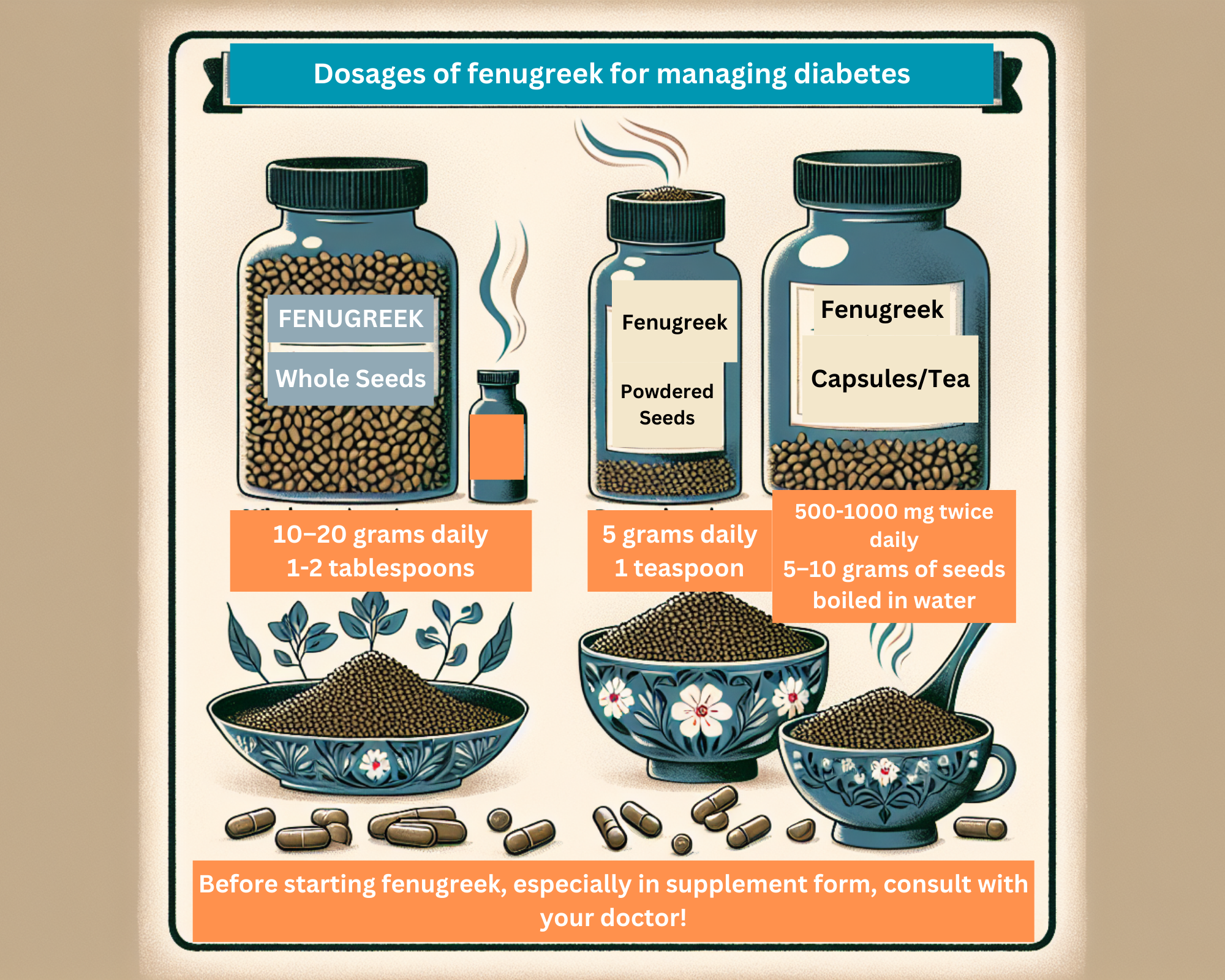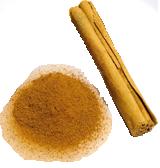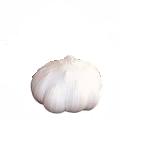How To Use Fenugreek For Diabetes Control?
- Home
- Natural Remedies
- Use Fenugreek for Diabetes Control
Educational content written by Dr. Albana Greca, MD, MMedSc
Specialist reviewed by Dr. Ruden Cakoni, MD, Endocrinologist
Fenugreek is a traditional medicinal herb that may help support blood sugar control for some people—especially when used as a complement to your overall diabetes plan (nutrition, movement, sleep, and medications when needed).
Fenugreek seeds are rich in soluble fiber, which can slow how quickly carbohydrates are digested and absorbed. This may help reduce after-meal spikes and, over time, may modestly support fasting glucose and HbA1c in some individuals.
Important: Fenugreek is not a replacement for diabetes medication. If you use insulin or certain tablets (like sulfonylureas), fenugreek can increase the risk of low blood sugar—so it must be used carefully.
What is Fenugreek?

Fenugreek (Trigonella foenum-graecum) is an herb traditionally used in the Mediterranean region, southern Europe, and western Asia.
The plant has small, round leaves and produces long, slender pods containing seeds that are commonly used in cooking and traditional medicine. Fenugreek seeds and leaves have a distinctive, slightly bitter taste and a strong aroma.
Fenugreek seeds and leaves are used as a spice and herb in various cuisines, particularly in Indian, Middle Eastern, and North African dishes. The seeds are often toasted to reduce their bitterness and add a nutty flavor to dishes.
Its seeds are rich in soluble fiber, protein, iron, magnesium, and manganese. They also contain various bioactive compounds, such as saponins, flavonoids, and alkaloids such as gentianine, trigonelline, and carpaine.
Fenugreek has been traditionally used to treat a variety of ailments, including digestive issues, inflammation, and respiratory problems. It is also known for its potential to help manage blood sugar levels and improve cholesterol profiles.
In addition, it is believed to aid in diabetes management by slowing carbohydrate digestion and absorption, thereby helping to regulate blood sugar levels due to its component, fenugreekine. It may also have anti-inflammatory, antioxidant, and appetite-suppressing effects.
How can Fenugreek help with diabetes control?

Fenugreek helps with diabetes primarily through its effects on blood sugar regulation through several mechanisms. I advise you to think of these as "possible pathways"—not guarantees.
Below, I will try to explain how Fenugreek helps manage diabetes:
1. It contains a high amount of soluble fiber. This type of fiber forms a viscous gel in the intestines, thus slowing down the digestion and absorption of carbohydrates in the intestines. This leads to a slower and more gradual increase in blood sugar levels after meals, helping to prevent spikes.
Furthermore, this type of fiber slows down the emptying of the stomach, which can also help maintain steadier blood sugar levels over time and prevent postprandial (after-meal) spikes.
2. Some studies suggest that fenugreek can improve insulin sensitivity, making the body's cells more responsive to insulin. This helps in better glucose uptake from the blood, thereby lowering blood sugar levels. This is due to its component, 4-hydroxyisoleucine.
3. Fenugreek has compounds (amino acids) that may help stimulate insulin secretion from the pancreas. Increased insulin production helps in better regulation of blood sugar levels by promoting the uptake of glucose into cells.
5. Fenugreek contains compounds like β-amylase, which have been shown to reduce the absorption of sugars in the intestines, thereby lowering blood sugar levels.
6. The antioxidant properties of fenugreek help reduce oxidative stress, which is often higher in individuals with diabetes. Lower oxidative stress can improve overall metabolic health and blood sugar control.
How do I use Fenugreek for diabetes control?

Fenugreek can be used in several practical forms. Choose one method at a time so you can clearly see how your body responds.
A) Whole Seeds
Soaked Seeds: Soak 1-2 tablespoons of fenugreek seeds in a glass of water overnight.
Drink the water and chew the seeds (if tolerated) on an empty stomach in the morning. This can help regulate blood sugar levels throughout the day.
If your stomach is sensitive, start with 1 teaspoon for a few days.
Sprouted Seeds:
Soak fenugreek seeds in water for 24 hours, then drain and leave them to sprout in a damp cloth for another day or two. Add the sprouted seeds to salads, sandwiches, or as a garnish for various dishes.
B) Fenugreek Powder
Powdered Seeds: Grind fenugreek seeds into a fine powder using a spice grinder or purchase fenugreek powder from a store.
Mix 1 teaspoon of fenugreek powder with water, milk, or yogurt. Alternatively, sprinkle it over foods such as oatmeal, soups, or smoothies. Many people tolerate powder better when taken with food.
C) Capsules and Supplements:
Fenugreek powder is also available in capsule form. Follow the dosage instructions provided on the packaging, or consult your caring doctor for personalized advice.
Keep in mind to use only reputable brands. Avoid “multi-ingredient glucose blends” at first (they make it harder to know what is helping or causing side effects).
D) Fenugreek Tea
Boil 2 teaspoons of fenugreek seeds in a cup of water for about 5–10 minutes. Strain the seeds and drink the tea.
Drink fenugreek tea once at first, then after a few weeks, twice daily to help manage blood sugar levels.
E) Fenugreek Leaves
Fresh fenugreek leaves can be used in cooking, such as in curries, soups, and stews. They can also be added to salads and smoothies.
Dried fenugreek leaves, known as "kasuri methi," can be crushed and added to various dishes for flavor and potential health benefits.
How much Fenugreek is typically used?

The effective dosage of fenugreek for managing diabetes can vary depending on the form in which it is consumed.
These are general ranges commonly used in studies and traditional practice:
- Whole seeds: 10–20 g/day (about 1–2 tablespoons)
- Powder: about 5 g/day (roughly 1 teaspoon), sometimes split into 2 doses
- Capsules: commonly 500–1000 mg, twice daily (depends on product)
- Tea: typically made with 5–10 g seeds, once or twice daily
Safety Tip (Fiber + Water)
Apart from the right dosage, regular and consistent consumption of fenugreek is essential to achieving the best results in blood sugar control.
Fenugreek seeds are high in fiber and can absorb water. To reduce constipation, bloating, or discomfort:
- increase slowly
- drink extra water
- don’t take large doses suddenly
Regularly monitor your blood sugar levels to track the effects of fenugreek and make any necessary adjustments to your diet or medication.
Before starting fenugreek, especially in supplement form, consult with your doctor, particularly if you are taking medications for diabetes or other conditions.
A Simple “2–4 Week Trial” Plan (Patient-Friendly)
If you want to try fenugreek safely:
1. Pick ONE method (soaked seeds OR powder OR tea OR capsules).
2. Start small for 3–4 days, then increase gradually.
3. Track glucose patterns:
- Fasting glucose each morning
- 2-hour after-meal glucose for your largest meal
- If you use a CGM: watch the post-meal peak and time-in-range trends
4. If you notice frequent lows or unusual symptoms, stop and contact your clinician.
How long does it take to see the effects of fenugreek on blood sugar levels?
The time it takes to see the effects of fenugreek on blood sugar levels can vary based on individual factors, dosage, and consistency of use. Generally, it may take a few weeks to a few months to observe significant changes in blood sugar levels.
Factors that can influence this timeline include:
- Higher dosages or more potent forms (such as concentrated extracts) may produce noticeable effects more quickly than lower dosages or whole seeds.
- Regular, consistent consumption is crucial for achieving and maintaining blood sugar control. Sporadic use may not yield significant results.
- Individual differences in metabolism, overall health, and severity of diabetes can affect how quickly Fenugreek impacts blood sugar levels.
- A balanced diet, regular physical activity, and adherence to other diabetes management strategies can enhance the effects of fenugreek.
So, as per the timeline:
Some individuals may notice a reduction in postprandial (after meal) blood sugar levels within a few hours to a few days of starting fenugreek, especially when consumed before meals.
Within 2-4 weeks, more consistent improvements in fasting blood glucose levels and overall blood sugar control may be observed. This period allows the body to adjust to the regular intake of fenugreek.
Significant changes in HbA1c (a measure of long-term blood sugar control) may take 2–3 months to become apparent. HbA1c reflects average blood sugar levels over the past 2-3 months, so sustained use of fenugreek is necessary to see improvements in this measure.
Are there any scientific studies supporting Fenugreek's efficacy for diabetes?
Yes, there are some scientific studies supporting the efficacy of fenugreek in managing diabetes. Over the last few years, the evidence has become clearer: fenugreek can modestly improve certain blood sugar measurements in some people, especially in type 2 diabetes—but results vary depending on the dose, form (whole seeds vs. extract), duration, and what else the person is doing (diet, exercise, medications).
Here are some key findings from various research studies:
When researchers combine multiple clinical trials (meta-analyses), they generally find that fenugreek is associated with:
- Lower fasting glucose (often by a modest amount)
- Lower HbA1c in several analyses (again, typically modest)
- In some studies, improved insulin resistance markers (like HOMA-IR)
A 2023 systematic review/meta-analysis that pooled 14 trials (894 participants) reported an overall reduction in HbA1c, while also highlighting an important issue: the studies were quite different from each other (different doses, different forms, different durations), which makes the “average result” less certain.
Another 2023 systematic review/meta-analysis focusing on type 2 diabetes and prediabetes also concluded that fenugreek can improve glycemic outcomes but emphasized that the effect depends heavily on trial quality and product standardization.
A newer 2024 meta-analysis (clinical trials in type 2 diabetes) reported statistically significant improvements in fasting glucose and HbA1c and also noted benefits across some lipid and weight-related markers in the pooled data.
What recent randomized trials add
Beyond pooled evidence, it’s also useful to look at newer randomized controlled trials (RCTs), because they can be more structured.
A 2024 randomized, double-blind, placebo-controlled trial evaluated a patented fenugreek seed extract and reported improvements in glycemic markers (including fasting and post-meal glucose and HbA1c) in participants with type 2 diabetes, along with a focus on safety/tolerability.
Why results differ from person to person?
This is the part I stress to patients:
-
Form matters
Whole seeds (high fiber) may help mainly with post-meal spikes, while extracts may act differently depending on the standardized compounds and dose. -
Dose and consistency matter
Most “positive” studies involve regular daily intake for weeks, not occasional use. -
Starting point matters
If your glucose is already well controlled, you may notice little change. If your post-meal spikes are a problem, fenugreek’s fiber effect may be more noticeable. -
Medication interactions matter
If you use insulin or sulfonylureas, fenugreek may increase the risk of hypoglycemia—so we only try it with closer monitoring.
What are the potential side effects of using Fenugreek?

While fenugreek is generally considered safe for most people when used in moderation, there are some potential side effects and precautions to be aware of. I will try to explain them as follows:
Digestive Issues
Bloating and Gas: Fenugreek’s high fiber content can cause bloating, gas, and discomfort, especially when consumed in large amounts.
Diarrhea: Excessive intake may lead to diarrhea and gastrointestinal upset.
Nausea: Some individuals might experience nausea or stomach discomfort.
Tip: start low and increase slowly.
Allergic Reactions
Although rare, allergic reactions to fenugreek can occur. Symptoms may include rash, hives, swelling, difficulty breathing, and wheezing.
Precaution: If you have a known allergy to peanuts, chickpeas, or other legumes, be cautious, as cross-reactivity can occur.
Hypoglycemia
Fenugreek can lower blood sugar levels, which might lead to hypoglycemia (especially in individuals already taking diabetes medications).
Regular monitoring of blood sugar levels is essential, and dosage adjustments for diabetes medications may be necessary under medical supervision.
Interactions with Medications
- Anticoagulants: Fenugreek can enhance the effects of blood-thinning medications (e.g., warfarin), increasing the risk of bleeding.
- Diabetes Medications: It can interact with other diabetes medications, potentially causing blood sugar levels to drop too low.
- Precaution: Always consult with your caring doctor/nurse before starting fenugreek if you are on any medications.
Pregnancy and Breastfeeding
Pregnancy: High doses of fenugreek can stimulate uterine contractions, potentially leading to preterm labor. Unless specifically advised to do so by your caring doctor/nurse, it is best to avoid fenugreek during pregnancy.
Breastfeeding: Fenugreek is commonly used to increase milk production, but excessive use can cause gastrointestinal issues in both the mother and the baby.
Maple Syrup Odor
Body and Urine Odor: Consuming fenugreek can cause a noticeable maple syrup-like odor in sweat and urine, which is harmless but might be unpleasant for some individuals.
Potential for Toxicity
Excessive Use: Very high doses of fenugreek can lead to toxicity and should be avoided. Always stick to recommended dosages.
Taking all the above potential side effects into account, it is highly recommended to:
- Begin with a small dose and gradually increase it to allow your body to adjust.
- Drink plenty of water to help manage the high fiber content.
- Keep track of any side effects and report them to your healthcare provider.
- Speak with your caring doctor/nurse before starting fenugreek, especially if you have underlying health conditions or are taking medications
Last reviewed 2/17/2026
Explore more herbs.
Diabetes complications Questions or Problems? Get Help Here
This is the place where you can ask a question about any aspect of diabetes complications.
It's free and it's easy to do. Just fill in the form below, then click on "Submit Your Question".














